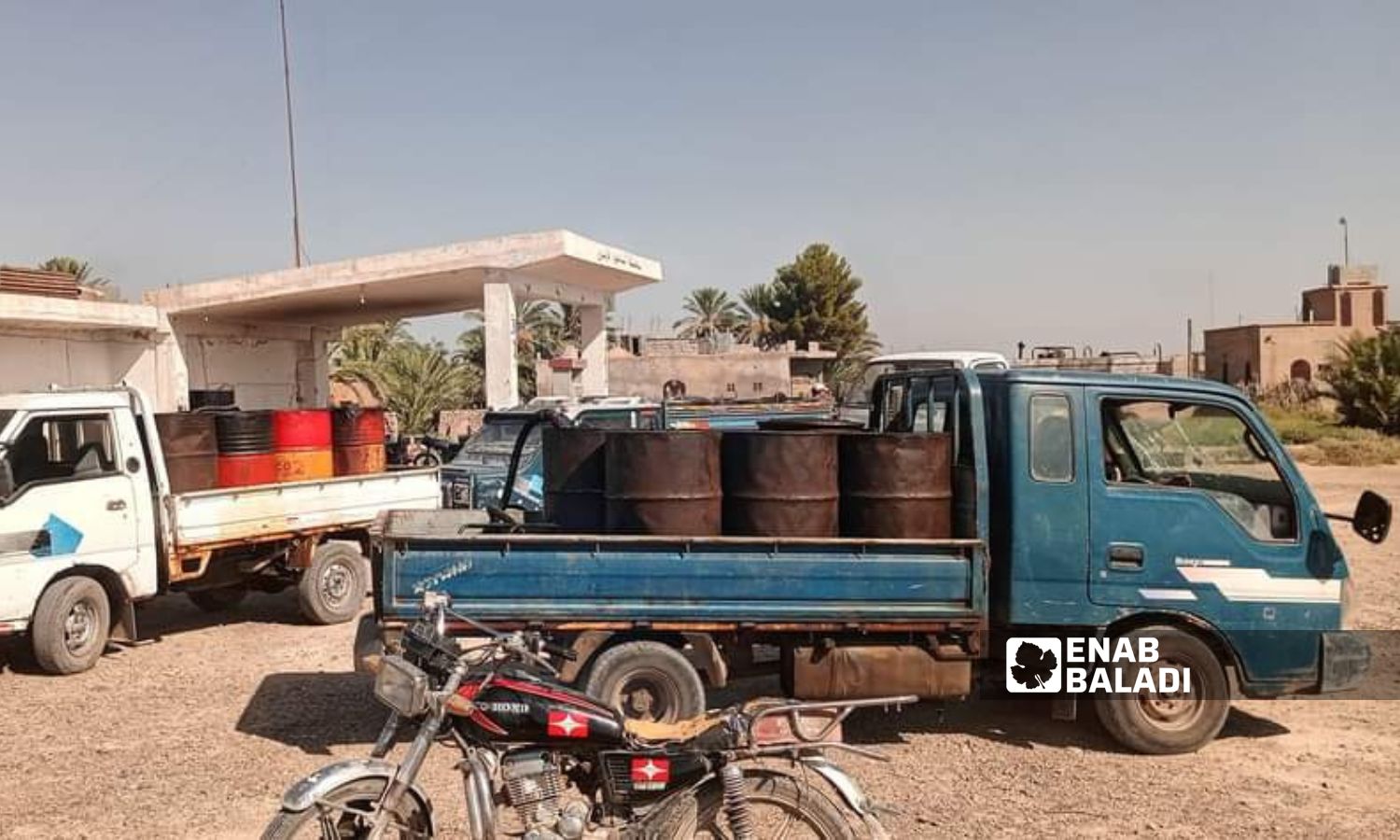



Deir Ezzor – Obadah al-Sheikh
The residents of the city of al-Basira, one of the largest cities in eastern Deir Ezzor, have been deprived of heating fuel allocations for this year due to what some of them described as “corruption” prevalent among the fuel committee workers under the Autonomous Administration of North and East Syria (AANES) and the owners of fuel stations in the area.
The fuel committee is responsible for calculating these allocations and distributing them to residents, while fuel stations serve as the source of supply. Both are under the authority of the Deir Ezzor Civil Council affiliated with the Autonomous Administration.
Residents of al-Basira told Enab Baladi that fuel station owners refused to fill the cards held by the residents to receive their allocations, granted to them by the fuel committee.
The General Oil and Fuel Administration in the Autonomous Administration announced the distribution of heating diesel to residents starting from May 15, setting the price at seven US cents per liter, with an allocation of 300 liters per family.
The Syrian pound exchange rate stands at 14,750 pounds per US dollar, according to the S-P Today website specializing in monitoring foreign currency movements.
Many residents of al-Basira in al-Ashrin Street, al-Khatila neighborhood, and al-Afif alley filed complaints with the fuel committee, which did not respond or follow up on the issue, according to what locals told Enab Baladi.
Ali al-Sheikh, a resident of al-Basira, told Enab Baladi that the owner of the al-Kassar al-Fouqani fuel station refused to fill the cards for him and his seven brothers, citing the unavailability of diesel.
He added that the station worker informed him that the fuel might be delayed in arriving at the station, potentially causing the card’s expiration before the diesel arrives, even though the card’s validity is for a whole year.
Al-Sheikh further mentioned that the card entitles him to receive 300 liters of diesel at a price of 105,000 Syrian pounds, while the price per liter of diesel outside the card system is 5,000 Syrian pounds.
Ahmed al-Mishan, a displaced person residing in al-Basira, said he went to receive his diesel allocation from the al-Rahil fuel station after receiving the card, but the workers at the station refused to fill it and offered to buy it from him.
He added that he has no intention to sell his card and only has the right to fill it at the designated station, noting that most stations in al-Basira try to force residents to sell their cards under the watchful eyes of the oversight committee appointed by the fuel committee in the civil council without any intervention.
Majda, a displaced woman living in al-Basira, mentioned that the specified fuel station refused to provide her with the card’s allocation because her husband was involved with the Islamic State organization.
Fuel cards are sold in areas under the Autonomous Administration for 450,000 Syrian pounds if their full allocation (300 liters) is still valid.
Fuels of all kinds are among the primary needs of citizens in eastern Deir Ezzor, known as the Syrian oil reservoir.
Residents suffer from a shortage of fuels, and when available, they are of poor quality for local use. Meanwhile, fuels of acceptable quality are sold to areas under the control of the Syrian regime or opposition through commercial channels of the Autonomous Administration.
An employee in the al-Basira municipality, who wished to remain unnamed as she is not authorized to speak to the media, told Enab Baladi that five tankers loaded with heating fuel were distributed to the al-Rahil, al-Kassar, and al-Basira fuel stations with a capacity of 200,000 liters, but none of them were distributed to the residents.
Despite not having exact information about the fate of these allocations, she speculated that they were sold to the Syrian regime through local traders.
if you think the article contain wrong information or you have additional details Send Correction